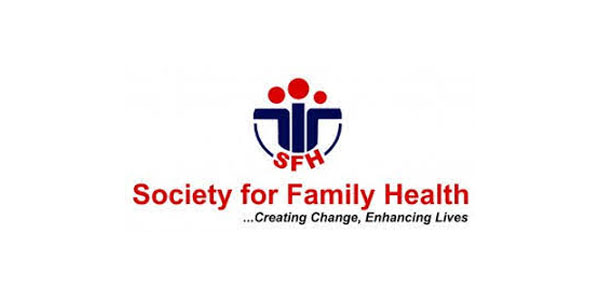By Asmau Ahmad
The Society for Family Health (SFH) has renewed its commitment to chart a path that will end AIDS.
The NGO said the path would help to prepare for and tackle future pandemics and advance progress towards achieving the 2030 global goals.
The Deputy Managing Director, Service Delivery, Mr Kene Eruchaluade, stressed the committment in a statement issued on Sunday in Abuja.
According to him, the renewed commitment follows the presentation of the Joint United Nations Programme on HIV/AIDS (UNAIDS) annual State of the Epidemic Report titled “The path that ends AIDS.”
Eruchalu said that the report charted a path that could end AIDS, document important progress, though challenges remained.
“Therefore, this calls for immediate action to put the world on course to reach critical 2030 targets.
“We at SFH are renewing our commitments and strategic priorities to continue to prioritise and reach women and key populations.”
Eruchalu said that women and girls were not being reached sufficiently.
He added that the report showed that “every week 4,000 adolescent girls and young women are infected with HIV and the majority are in the region of Sub-Saharan Africa due to gaps in HIV prevention programmes and gender inequalities.
“According to the new report, the path to ending AIDS is clear but requires political and financial commitment.
“An estimated 39 million people were living with HIV around the world in 2022, yet world leaders could end AIDS as a public health threat by 2030.”
He said addressing those gaps was crucial to end AIDS and would also require international solidarity between rich and poor countries.
He also said that it was time for countries, including Nigeria, to renew their commitment by translating their promise into action.
“Local ownership, domestic resources mobilisation and integration, which are anchored in strong political leadership and communities, are essential.
“We are calling for renewed action and commitment from government and partners to continue the path that ensures sustainability, with focus on children and key populations and investing in a sustainable response through financing what matters most.”
Eruchalu said that SFH, with support from multiple partners, had been working together to eliminate all HIV-related stigma and discrimination by providing safe space and promotion of non-discriminatory laws for key populations.
He added that recently, the Harm Reduction Services Guidelines and SOP was recently inaugurated in Nigeria, with SFH providing high-level technical support towards its actualisation.
This includes supporting research and study tours towards better understanding on how it can be rolled out.
The organisation is also providing continuous support in meaningful engagement for young people in and out of schools, education and curriculum development and voluntary HIV testing to empower community networks.
“We have also rolled out interventions around Prevention of Mother to Child Transmission (PMTCT) for pregnant women and children.”
This reaches thousands to uphold the power of adolescent girls and young women to make autonomous decisions about their own bodies and challenge discriminatory norms that prevent access.
“We work to continually build the capacity of community-based organisations, lower cadre health workers and networks, to enable sustainable HIV programming at community level,” he said.
Eruchalu added that SFH was now working with the National Health Insurance Authority, National Agency for the Control of AIDS and other sub-national governments to put people and communities first in their policy priority and programmes in achieving Universal Health Coverage (UHC).
This, he said, promoted the integration of HIV care in Nigeria’s health systems, leadership and governance, and gender equality for better overall health.




